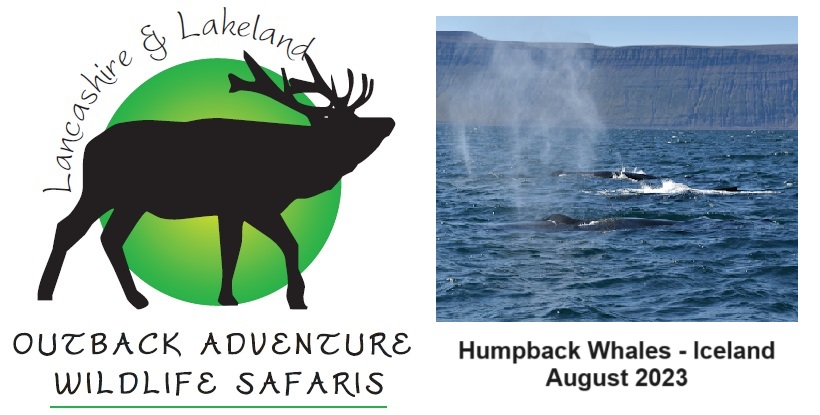The Safari watched the rain hammering down this
morning and we didn’t dare venture out.
By lunchtime we looked out of
the window to see the rain had eased so we grabbed the scope and headed out.
There wasn’t much to see, as the cloud was so low we could hardly see the
sea. Rain was looming large not too many
minutes away. To compound matters the wind was driving the rising tide well up
the wall even though we were there a good hour and a half before high tide.
We scanned a few times before
picking out a small flock of Common Scoters trying to rest on the heavy sea –
do they never get sea-sick? A Great Crested Grebe was seen briefly before being
lost in the waves and we watched two Cormorants heading towards the mouth of
the river...that was enough we were getting wet with spray from the other side
of the wall – time to call it a day and get back indoors. Total number of birds
seen was less than 20 including the two Blackbirds listening for worms on the front lawn.
We have, at long last, finished
reading Mark Avery’s Fighting for Birds. It’s taken us rather longer than the
single sitting it took Chris Packham! Still it’s a good read and to think he
did all that (and more) while we have been a member of the RSPB and we’d never
heard of him until he’d left the organisation. We had already come across some
of his earlier work and not realised it...he was the author of the Sandwich
Tern pages in the last Atlas...
The chapters cover a variety of
conservation issues that have hit the headlines over the last 25 years giving
the view from the ‘inside'.
If Britain
wants to retain its green and pleasant image (image is often all it is as we're not that green and in more than some situations rather unpleasant too) the conservation movement is going
to have to be victorious in many more such battles before the war is won, if it ever can be.
If anything it is a call to arms
to all who wish to defend our precious wildlife against all those who don't understand it's importance to the well being of the human species and who are prepared to ride roughshod over it.
It should be an essential read for up-and-coming Environmental Scientists, aging naturalists like the Safari so as we can see what has been going on in our name, land managers so as they can learn that profit and nature conservation are far from mutually exclusive and politicians so that they ensure the right decisions can be made without compromising the natural world.
It should be an essential read for up-and-coming Environmental Scientists, aging naturalists like the Safari so as we can see what has been going on in our name, land managers so as they can learn that profit and nature conservation are far from mutually exclusive and politicians so that they ensure the right decisions can be made without compromising the natural world.
We’ve adapted this from the
final few paragraphs.
At least once a week look up at the stars and realise that
our tiny speck of dust, the Earth, may have the largest life-form that has ever
existed, the Blue Whale (despite us humans doing our very best to kill them
off). Down on earth you can also smell the scent of pine trees and hear the
exalting song of Skylarks. Just take a few moments to revel in the wonder of
the natural world around you every now and then, there’s a small chance it
might not exist anywhere else in the vastness of the universe! And always remember
we’re very much a part of nature not apart from it!
It’s a good read...then act on it!
Also a very good read and waiting for you to download
onto all those new Kindle machines you’ve been buying as Christmas present is
our very own What a Monster Week!
Brilliantly illustrated by James McLean
Where to next? Please no rain on Patch 2 tomorrow.
in the meantime let us know what the library shelves are groaning under the weight of in your outback.
Where to next? Please no rain on Patch 2 tomorrow.
in the meantime let us know what the library shelves are groaning under the weight of in your outback.


No comments:
Post a Comment